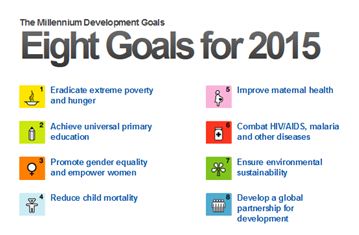
Whilst not perfect, the Millennium Development Goals have helped to focus the work of the global health community. But what happens post 2015? Guest blogger Ana Lorena Ruano, Managing Editor of International Journal for Equity in Health tells us about new research into giving a voice to marginalized communities.
The Millennium Declaration of 2000 presented the world with eight Millennium Development Goals, which aimed to improve social and economic development and to eradicate poverty.
Despite the goals’ shortcomings, the last decade and a half has shown the global health community how useful they can be when it comes to focusing attention and funding into specific areas. Today, the global consensus is to renew these goals through the embracement of different goals.
After more than a year of global consultations, the United Nations has convened to agree on a broad outline for the post-2015 Sustainable Development Goals. Concerned that the voices of marginalized communities are not being sufficiently sought out and listened to, the research consortium Goals and Governance for Global Health has carried out a series of health-focused consultations in countries in Africa, Asia, Latin America and in the Pacific in order to seek out community views on essential health needs, accountability and more.
Many of the results and associated lessons are now being published in a new article collection from the journal International Journal for Equity in Health entitled ‘Health, equity and the post-2015 agenda: raising the voices of marginalized communities’, which I am editing, with guest editors Peter S Hill and Eric A Friedman.
Working with marginalized communities has not been an easy task. The context where our consultations were carried out was very far removed from the reality of the post-2015 debates. This led us to question how to define marginalization, how to access marginalized communities and how to work with them in a meaningful way.
Given the social, historical, cultural, ethnic and geographical diversity of our chosen community partners, and the diversity of their lived experiences, could their unique situations be generalized in ways that could influence the global debate?
In this article collection, we have tried to explore the uniqueness and the commonalities of the issues and barriers that marginalized communities face all over the globe, and present them in individual papers that, together, provide a nuanced and complex picture of the challenges that face the post-2015 health-related agenda setting-process.
[…] Go4Health is an FP7 research project coordinated at the ITM’s Department of Public Health. One of its objectives is to raise the voices of marginalized communities in the post-2015 debate on health, and this collection illustrates our work in that respect. Ana Lorena Ruano summarizes the content of this collection in a blogpost in Biomed Central entitled Life after the Millennium Development Goals: Raising the voices of marginalized communities. […]